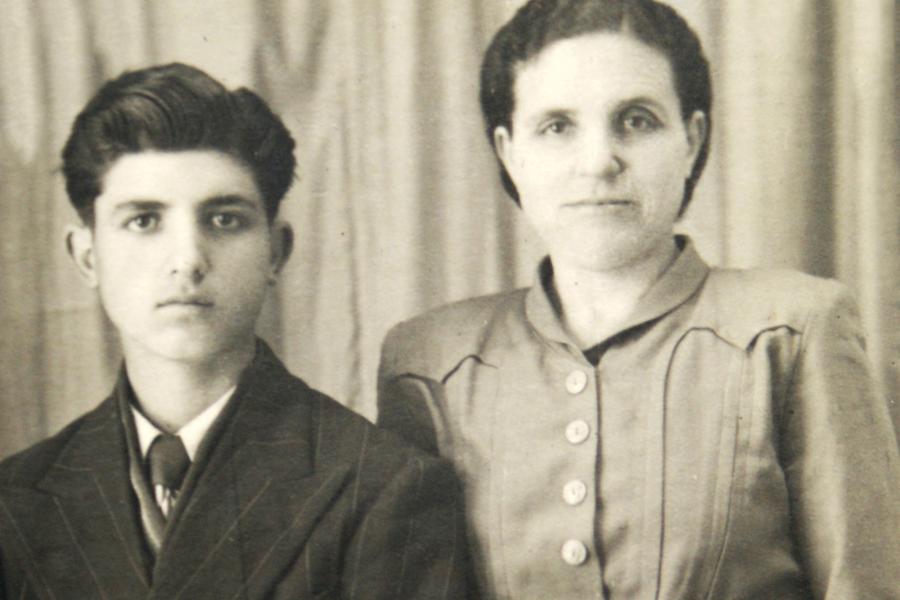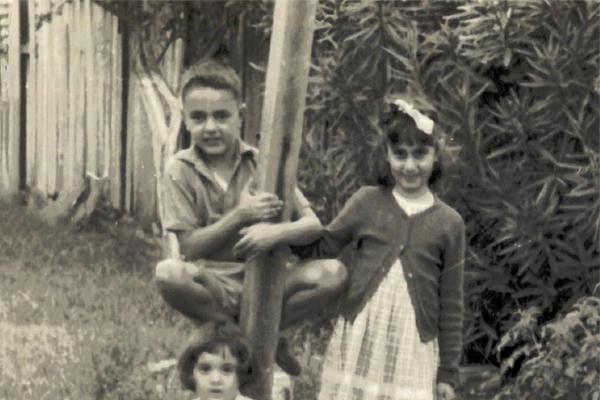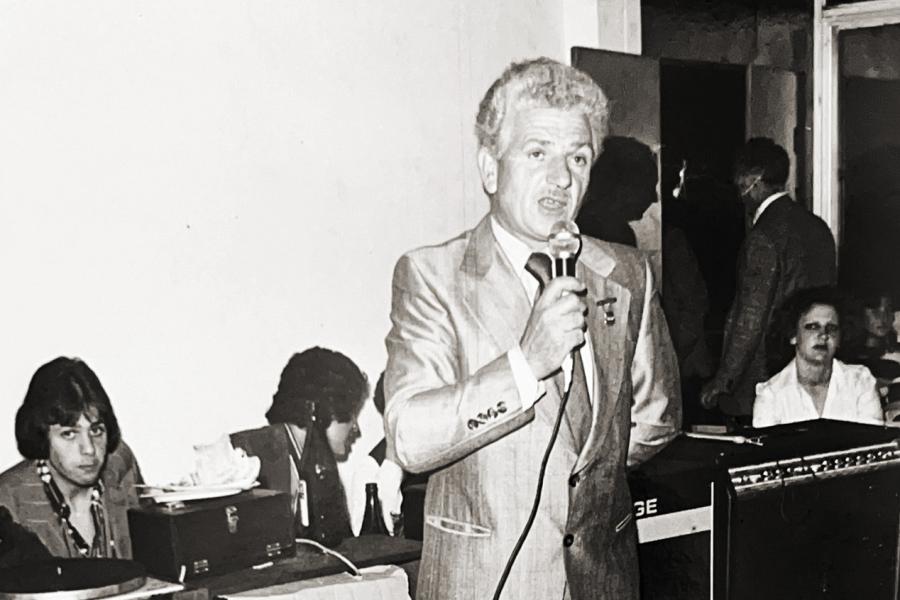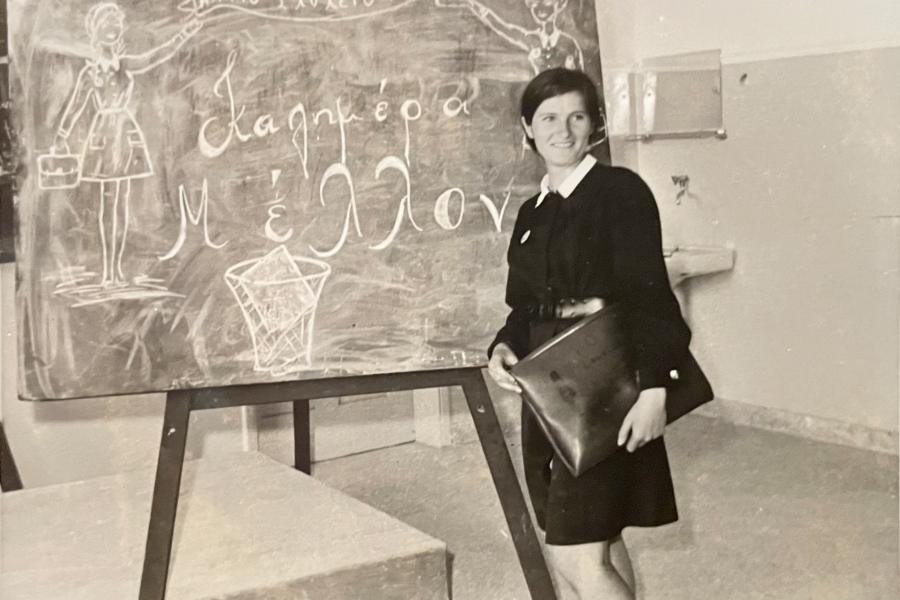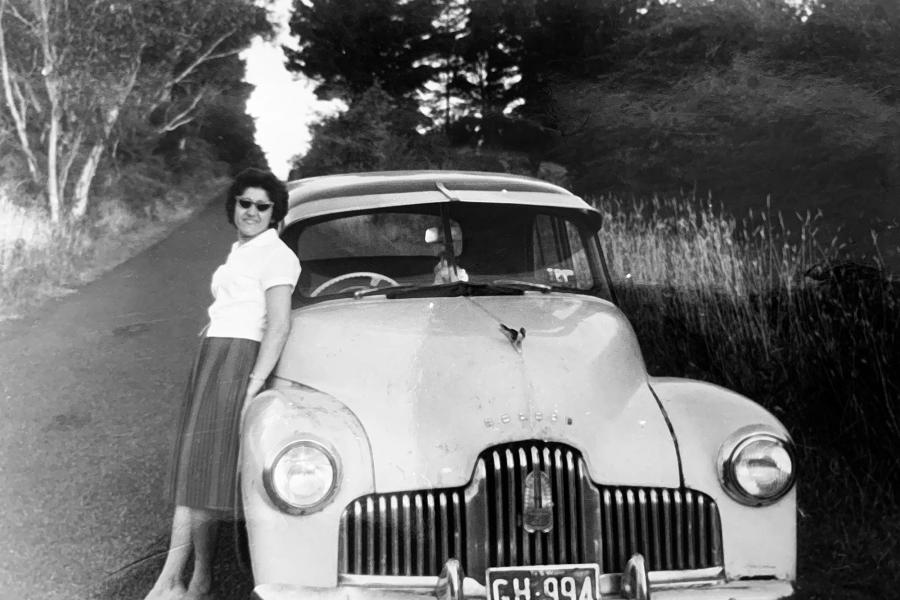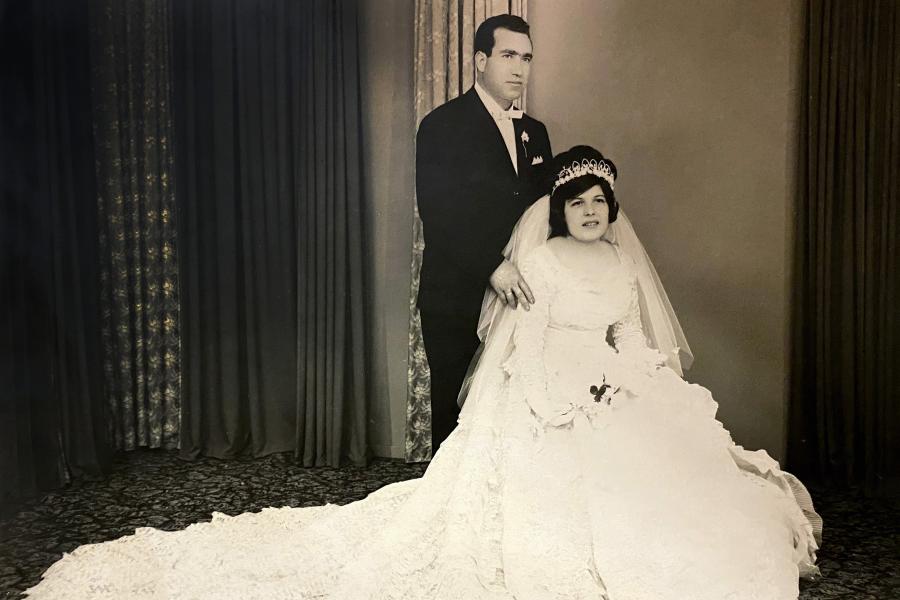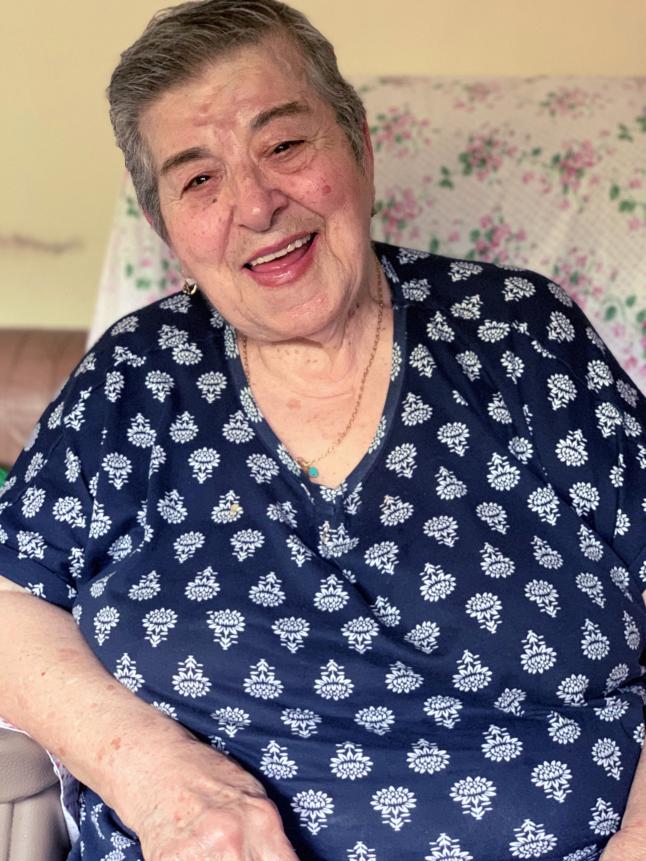

Speaker background
Evdokia Kokkinakos was born in Athens in 1934. She worked as an apprentice dressmaker for an haute couture designer, who made evening gowns for high-end clients including Athina Onassis and the Greek royal family. At the age of 23 she was sent to Australia by her father, to visit her younger sister who had migrated the previous year. A year after her arrival Evdokia would be married and then running a mixed business store in Alexandria. She and her husband lived above the shop before purchasing their first home in Concord where they settled. Over the years she undertook various jobs as a seamstress in the textile industry.
Interview summary
Evdokia discusses her early years in Athens, where she was enjoying her work as a seamstress, and her busy social life. Being the dutiful daughter, she followed her father’s wishes to come to Australia to visit her sister. She would come to realise her father wanted to marry her off and spare him from providing a dowry.
Interview highlights
highlight
Evdokia explains her reluctance to come to Australia, but goes on to justify her father’s reasoning in encouraging her to go
Evdokia: I personally didn’t want to come to Australia because, as I said, I had my job. I had my friends, the girls that I worked with. Together on the weekend, we’d go to the cinema. We’d go on trips. I had a friendship group. We were ten, eleven girls, and we worked together for years, and I didn’t want to come. But one of our neighbours asked my father about my sister, the one that’s after me, that he wanted to marry her. He’d already come here. My father asked me, saying the man is interested in Georgia. ‘Shall we tell her to marry him? What shall we do?’ ‘Don’t ask me,’ I said to him. ‘He wants her, and you should ask her.’
Interviewer: He had already left for Australia and asked for her hand in marriage after many years?
Evdokia: No, he wasn’t here too long, about a year, maybe two at the most and I said she is the one responsible and she is the one to ask, don’t ask me about this and she agreed to go. However, my father thought about it and said he should send me. What he said to me was he didn’t want his other daughter to be by herself and I should go and keep her company. But, for me, it wasn’t this, because, on the one hand, he was justified. We were 4 girls. How was he going to marry them? It was a problem. How was he going to marry them? He said, ‘The first one’s gone and married over there. The other one may as well go. It reduces the number. With only two left behind.’ I told him that I didn’t want to go. I have my job. I like it. I don’t want to leave from here. ‘It doesn’t matter,’ he said. ‘Go for a short while to keep her company and if you don’t think you can stay, come back.’ Nevertheless, I came. But not willingly.
Timecode 08:29 - 10:56
highlight
Evdokia recounts the early days when she was living with her sister and brother-in-law in their Haberfield home along with several other relatives
Evdokia: In this house, in one room, lived my sister with my brother-in-law. In the other, lived one of his brother’s, the married one with his wife. In the lounge room of the house lived his sister with her husband and two children. In the other lived my brother-in-law’s two brothers, and I lived in the other small room. Think about it, how many people lived here.
Interviewer: How many, 12, 13?
Evdokia: No, it was two for my brother-in-law, his brother and wife that’s four, and two other siblings makes six and me seven.
IInterviewer: How did you all manage in the kitchen, was only one person cooking or did you take it in turns?
Evdokia: Usually, his sister, who lived there with the two children, cooked early. That left the others to cook, me and my sister, for example, because, I tell you, my brother-in-law’s sister was also looking after her siblings, the single ones, that were there. And then my sister was to cook for us. That’s it. We didn’t have any problems.
Timecode 18:43 - 19:51


